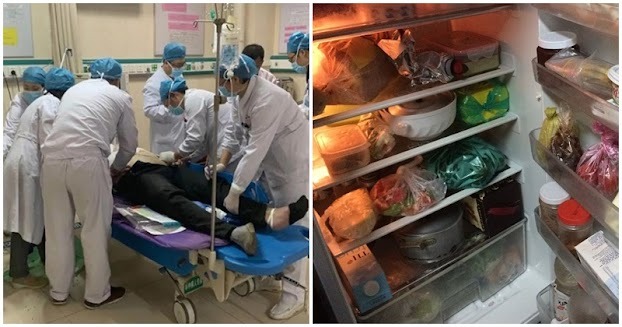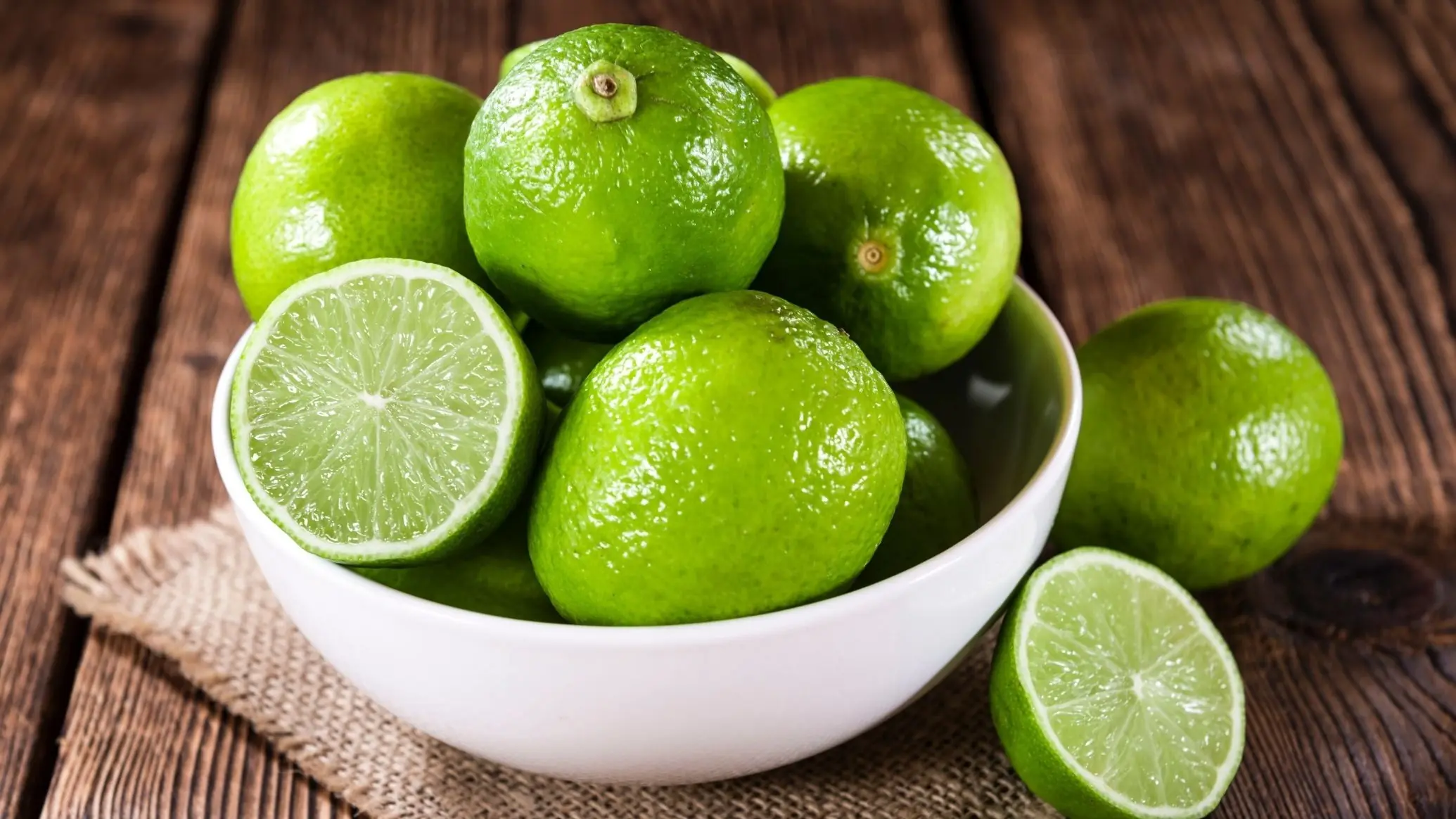
Eating Leftovers from the Fridge, a 50-Year-Old Man Dies: 5 Foods You Should Never Leave Overnight—If Leftover, Just Throw Them Away
A shocking and tragic incident has recently made headlines: a 50-year-old man passed away after eating leftover food stored in his refrigerator. Initially, no one suspected the cause. But later medical reports confirmed that the man had suffered from severe food poisoning due to harmful bacteria growing in improperly stored leftovers. His death is a heartbreaking reminder that not all food is safe to reheat and eat the next day—even if it smells and looks fine. There are certain dishes that, once cooked, should never be stored overnight. If there's any leftover, the safest choice is to throw it away.
Here are five foods you should absolutely avoid keeping overnight, even in the fridge:
1. Cooked Spinach and Leafy Greens
Spinach and other leafy greens like lettuce, bok choy, or mustard greens are rich in nitrates. When stored for a long time after being cooked, especially at room temperature, these nitrates can convert into nitrites and even harmful nitrosamines. These compounds are potentially carcinogenic. Reheating such vegetables the next day increases the risk of toxicity, especially in children and the elderly. It’s safest to only cook what you’ll eat and discard any leftovers.
2. Mushrooms
Mushrooms are high in protein and moisture, making them a perfect environment for bacterial growth. When left overnight—particularly if not refrigerated properly—they can spoil quickly and produce toxins. Reheating them the next day can worsen their chemical structure and cause digestion problems or, in rare cases, even food poisoning. Always eat mushrooms fresh, and don’t risk saving them for later.
3. Eggs
Hard-boiled or scrambled eggs, when left at room temperature or not stored properly, can become breeding grounds for salmonella and other harmful bacteria. While eggs can be refrigerated, reheating them more than once is risky. If you’ve made more eggs than you can eat, it’s better to discard the rest than risk serious illness.
4. Seafood and Shellfish
Fish, shrimp, clams, and other seafood spoil faster than most other foods. Even if they’re kept in the refrigerator, seafood can develop toxins that are not destroyed by cooking or reheating. In many reported food poisoning cases, leftover seafood was the cause. A small bite can lead to nausea, vomiting, or more serious health consequences. Never store leftover seafood overnight—consume it fresh or toss it.
5. Rice
This may surprise many people, but cooked rice is one of the most dangerous foods when it comes to foodborne illness. If rice is left at room temperature for a few hours, bacteria called Bacillus cereus can grow and produce toxins. These toxins can survive even after reheating. This makes rice a common cause of food poisoning. If you must store rice, refrigerate it within one hour of cooking and eat it within 24 hours—once only.
This real-life tragedy serves as a powerful warning. Often, we underestimate the dangers of food that “seems okay.” But bacteria and toxins can’t always be seen, smelled, or tasted. In some cases, just one meal of spoiled food is enough to cause serious illness or even death.
What should you do?
Be mindful. Store food in airtight containers, refrigerate within one hour of cooking, and follow the “when in doubt, throw it out” rule. Most importantly, understand that not all foods are safe to reheat or keep overnight.
Sometimes, saving a small portion of food isn't worth the risk. Your health—and your life—is far more valuable than a leftover meal.
News in the same category


Purple Dead Nettle (Lamium purpureum): A Wild Ally for Circulation and Heart Health

After Reading This, You’ll Always Carry a Lemon with You—It Might Save Your Life Someday

Urgent warning after girl is blinded from household product

What This Oncologist Notices First in Most Cancer Patients Might Surprise You

Why you should never flush ticks in the toilet

Vaseline and Lemon: An Inexpensive and Effective Skincare Remedy

Eliminate Plantar Warts with These Natural Garlic Remedies

The Essential Guide to B Vitamins: Benefits, Types, and How to Get Enough

Tooth Decay: Causes, Types, and How to Prevent It

What Is Acid Reflux? Causes, Symptoms, and How to Treat It

The Timeless Wisdom of Dr. Norman Walker: The Philosophy of Health and Longevity

💪 45 and Tired? This Grandpa-Approved Beetroot Drink Might Change Your Life

4 Foods You Should Never Combine with Honey Due to Toxin Risk — Many People Consume Them Without Knowing

Get Baby-Soft Heels: Olive Oil and Baking Soda for Cracked Heels

Natural Remedy for Liver Cleansing: One Tablespoon Before Bed

24-Year-Old Woman Suffers Stomach Perforation Due to One Common Morning Coffee Mistake

65-Year-Old Man Passes Away at Night: Doctor Warns Against 4 Types of Drinks Before Bedtime

Carrot Orange Ginger Juice: A Nutrient-Packed Powerhouse for Your Health
News Post

Child Dies After Biting and Breaking a Thermometer—You Must Know What to Do When a Thermometer Breaks

Purple Dead Nettle (Lamium purpureum): A Wild Ally for Circulation and Heart Health

After Reading This, You’ll Always Carry a Lemon with You—It Might Save Your Life Someday

We Are Living in a Moment That No Human Before Us Has Ever Witnessed—An Actual Photograph of a Sunset on Mars

Mount Rainier’s Glacier-Capped Peak Poses Lahar Threat To Millions—Authorities On High Alert

Urgent warning after girl is blinded from household product

MY DYING NEIGHBOR CALLED ME AND ASKED ME TO VISIT HER URGENTLY – THEN GAVE ME HER SECRET WOODEN BOX

I WOKE UP TO FIND MY FLAG GONE—AND A $20 BILL ON MY DOORSTEP

I TOOK MY NEPHEW TO THE FARM TO TEACH HIM A LESSON—BUT HE ENDED UP TEACHING ME ONE

Caring for our newborn meant missing dinner—my husband didn’t save me a plate

During the funeral, a crow lands on the little girl’s coffin

What This Oncologist Notices First in Most Cancer Patients Might Surprise You

Why you should never flush ticks in the toilet

Vaseline and Lemon: An Inexpensive and Effective Skincare Remedy

Eliminate Plantar Warts with These Natural Garlic Remedies

Experts Clash Over Claims Of Vast Underground City Beneath Pyramids — Discovery Sparks Global Debate

My Neighbor Tried to Kick Me out of My Own Home, Until I Found a Note That Said 'You Need to Know the Truth About Your Husband' — Story of the Day

The Essential Guide to B Vitamins: Benefits, Types, and How to Get Enough
